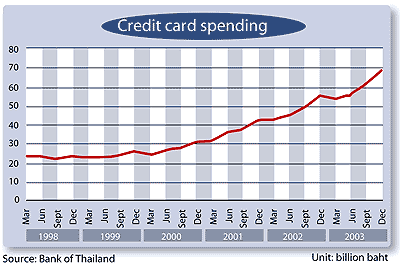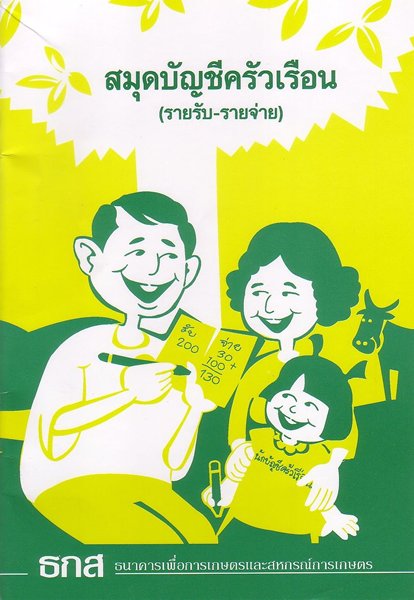From Nation of earlier today:
Prime Minister Surayud Chulanont told the National Legislative Assembly on Friday that his government would focus on self-sufficiency economy. Surayud announced the policies of his government to the NLA at 9:30 am Friday. He told the NLA that his government would encourage the members of the public to save and to try to reduce their debts so that the society will become stronger.
Let’s hope the debt reduction campaign starts in the city where the middle classes have gone on a credit binge. But it won’t surprise me at all if the war cry of sufficiency is used against “populist” policies like the one million baht village fund. As I wrote (pre-coup) in an earlier post:
In the current political context is is important to ask to what extent policies such as the one million baht Village Fund have fed an increase in household debt. Perhaps not very much at all. Figure 3.1 in the Monetary Policy Group paper suggests that in 2003 the Village Fund represented less than 3 percent of household credit. And the Bangkok Post’s 2004 Mid-Year Economic Review reports that “Government policies such as the 30-baht health-care scheme, farm debt relief and the village fund programme are not seen as significant contributors to consumer loan growth since most lenders have focused on middle-income earners in urban areas.”
It may be more legimate for social commentators to focus their attention on the proliferation of credit card debt.
But credit cards are the darlings of the middle class. It is only rural debt that seems to threaten the ideals of self-sufficiency that are being deployed against Thaksin. Especially when rural folk have the cheek to purchase some of the trappings of urban modernity such as mobile phones. Outrageous!
It will be interesting to see how this sufficiency push for savings pans out. Perhaps the good folk of Bangkok could be issued with the household accounting books (samut banchee khrua huan) that were distributed in rural areas by the Thaksin government with the (Thaksin-stated) objective of ensuring households “have income that is higher than expenditure.” Sounds like Thaksinomic sufficiency to me.
 Facebook
Facebook  Twitter
Twitter  Soundcloud
Soundcloud  Youtube
Youtube  Rss
Rss 

